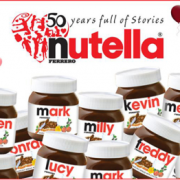Big Brands Losing Consumer Trust
Once upon a kitchen table, people automatically served up dishes from Big Food brands like Kellogg, General Mills and Kraft without a second thought. But now that consumers are thinking more about health than convenience or brand loyalty, AdvertisingAge reports their shopping baskets are stocked with smaller, upstart brands that are frequently thought of as healthier and more authentic.
And the Big Food brands are scrambling. Trends in the consumer package goods (CPG) industry include a flurry of strategies designed to bring back what many big brands have lost: consumer trust.
The loss of that trust really hit home in mid-2013 when the shift away from processed food stuff became increasingly obvious. That was about the time Millennials started establishing households led by moms who were less loyal to brands and more educated on healthy food choices. Social media added fuel to the fire with ongoing discussions on healthy eating, while distribution improvements allowed for fresher, less-processed foods to hit the shelves.
Product Reformulation
Big Food soon learned any ingredients seen as artificial became a clear mark of doom. Product reformulations of even the most iconic products, like Kraft’s Mac and Cheese, were soon underway. To prevent losing consumer trust, Nestle vowed to remove artificial colors and flavors from its candy brands. Cheerios was soon to be gluten-free.
Revamped Retail Channels
Retail channels largely known for their quick-fix, processed foods followed suit, striving for that same stamp of credibility and approval already enjoyed by chains like Whole Foods and Trader Joe’s. Target said it would overhaul its entire grocery line, focusing on less-processed foods. Wal-Mart even urged its suppliers to cut down on the use of antibiotics in farm animals, only using them for medical reasons and not to prompt growth.
Acquisition of Smaller, Trusted Brands
Another Big Food, big brand strategy is to acquire smaller, trusted brands that already have consumer trust and a loyal following. While some big brands fouled up the smaller brands by changing them, such as Kellogg’s decimation of Kashi cereal, others have learned to let the smaller brands operate in the manner that made them successful in the first place.
Overcoming Obstacles
Despite the strategies in place, Big Food is still facing several obstacles in its race to win back consumer trust. One is the ever-changing definition of what is healthy, with ingredients like sugar often going from one end of the spectrum to the other in a relatively short period. Another is the risk of turning off long-term loyal customers who are happy with the way things are.
A third is falling prey to drastic cost-cutting measures, often done under the guillotine of takeover firms like 3G Capital, which focus on short-term savings rather than long-term brand growth.
Regardless of the Big Food moves, consumers appear ready to continue their quest for healthier food choices. Measures that can always help include providing comprehensive ingredient lists, outlining the product’s origination and manufacturing details, and striving for customer engagement – all of which contribute to the consumer trust many brands have already lost.










Leave a Reply
Want to join the discussion?Feel free to contribute!